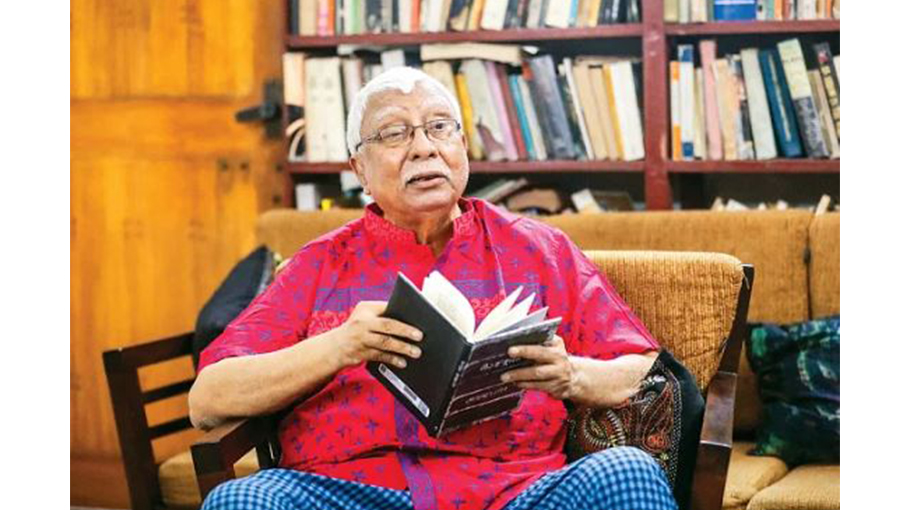Mohammad Rafiq: Weaving dreams and realities through poetry

In the realm of literature, where words have the power to shape minds and hearts, the name poet Mohammad Rafiq stands as a beacon of poetic brilliance. Hailing from Boitpur, Bagerhat, Rafiq's poetry transcends borders, inviting readers on a journey of self-discovery and empathy.
Rafiq and his contemporary poets belonged to generation of the 1960s. Despite his camaraderie with the poets of this batch, Rafiq has all through maintained a unique and distinctive character. This generation of the last century witnessed an era of political and cultural turbulence.
In fact, after the sowing of the seeds of independent Bangladesh in the 1950s, in 1952 in particular, the following decade passed through the times which elaborated on the latent dream of self-rule or autonomy --- and finally independence of Bangladesh
Mohammad Rafiq's life experiences became the wellspring from which his poetic expressions flowed.
A Voice for Social Change
Beyond the realm of literature, Mohammad Rafiq wields words as tools for social change. In a world grappling with challenges, his poetry resonates as a call for justice, equality, and empathy. His verses challenge social biases, economic disparities, and environmental degradation. Rafiq's ability to address complex issues with sensitivity underscores his role as a socially conscious poet, inspiring contemplation and action.
His verses often navigate the interplay between dreams and realities, seamlessly weaving personal experiences with broader societal narratives. Through vivid imagery and poignant metaphors, Rafiq constructs a bridge between the ordinary and the extraordinary, inviting readers on a transformative literary journey.
The poet's famous poem "Sob Shala Kobi Hobe" which shook the throne of the then military dictator of the country, Hussain Muhammad Ershad. But the irony is that the dictator's henchmen went on to arrest the poet whereas the poem did not mention anyone's name.
He rues the tapering off of the study of the classics in the literary practice of contemporary Bengali poets. He also observes a similar situation in the global poetry around the last century. However, he provides a list of enemies harming poetry.
This includes -free market economy, corruptive democracy, unreadable novels, colorful visual media, poems growing out of the garment of poetry- among others. He suggests that poetry should be more straightforward in dealing with its subject-matters and content.
Mohammad Rafiq believes poetry will push its way through all the problems and adversities facing it. He makes a bold statement as far as poetry is concerned, that is 'As the pre-condition to death is life, so is poetry to life.'
Mohammad Rafiq tries to offer an insight into the historical evolution of the Bengali nation, its language and poetry. He laments the break-up of Bengal and decries the mental distance between the two major religious communities inhabiting the geography.
After leading an eventful life, poet Mohammad Rafiq left this world on August 6, 2023 at the age of 80.
Serving as a teacher of English at different colleges, at one stage he joined Jahangirnagar University as Associate Professor. Earlier, in 1967, Rafiq completed his Masters in English at the University of Dhaka. He served for a commercial bank in Dhaka at the early stage of his career for some time. For his contribution to Bangla language and literature he was honoured with the Ekushey Padak in 2010. Earlier, he was awarded the Bangla Academy Puroskar in 1987. Poet Mohammad Rafiq's maiden book 'Boishakhi Purnima' was published in 1970. It was followed by 'Dhulor `Sangsarey Ei Mati' (1976), 'Kirtinasha' (1979), 'Kopila' (1983) and nine others. The poet in his career developed a self-styled lucid diction; but it was interspersed with a veiled inscrutability. He wrote his autobiography 'Pothik Puran' in three parts.
In conclusion, Mohammad Rafiq is one of the poster boys of poetry in independent Bangladesh. His is a mighty prose with a magical charm to keep the reader thoroughly captivated.



